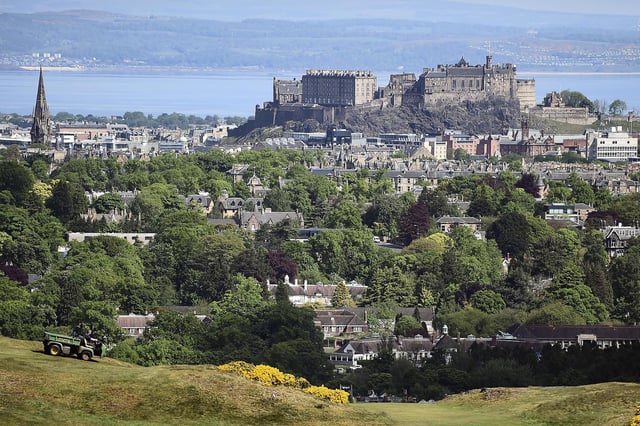One of Britain’s leading cultural heritage activists has urged Edinburgh to completely rethink its city center in the face of pandemic restrictions to avoid becoming too dependent on tourism in the future.
Friday, April 16, 2021, 10:20 p.m.
Updated April 17, 2021 at 11:44 p.m.
Loyd Grossman said the Scottish capital suffered badly after benefiting from the “explosive growth” of the global tourism industry in modern times.
Mr Grossman, who has advised the charity tasked with protecting Edinburgh’s World Heritage status, urged the city to resist the temptation to “go back to what it was”.
He also recommended that citizens should be properly consulted on how to restart and restore the city’s tourism industry, which is believed to be worth more than £ 2 billion and has supported around 36,000 jobs in recent years .
Mr Grossman said Edinburgh has become known as “one of Europe’s tourist honeypots” but has reached a “deformed” economy and parts of the city that have been “flooded” with visitors.
He called for alternative options for the city center and its historic architecture to ensure that it remains attractive to the people of Edinburgh and as a place to invest and relocate. Boston-born Grossman, who has made a name for himself as a journalist and broadcaster is a past chairman of the Heritage Alliance and former commissioner of the Museums and Galleries Commission, English Heritage, and the Royal Commission on the Historical Monuments of England. In an exclusive interview, Grossman said: “Edinburgh is both a city of culture and a city with very important financial and commercial companies that is very well connected globally and nationally.
“But like so many other places, the explosive growth of tourism has turned Edinburgh into a tourist honeypot. It has undoubtedly become one of Europe’s tourist honeypots.
“Long before the pandemic, we were all talking about the dangers of overtourism and how it harms and deforms the economy.
 Edinburgh’s tourism industry was valued at more than £ 2 billion a year before the pandemic broke out last year. Image: Lisa Ferguson
Edinburgh’s tourism industry was valued at more than £ 2 billion a year before the pandemic broke out last year. Image: Lisa Ferguson
“This has become a real problem in Edinburgh, where a large percentage of property in the city center has been converted to Airbnbs and some areas have been completely flooded with tourists.
“There were already management problems in Edinburgh and then this very rich segment of the economy suddenly collapsed.
“This is now an opportunity for Edinburgh to rethink things. How much tourism do you want? What kind of tourism do you want? You can opt for inferior mass tourism or cultural tourism, higher quality, more thoughtful tourism.
“These are political decisions made by politicians on behalf of the people, but they must be presented with alternatives. We cannot just go back to what things were right now.”
Loyd Grossman spoke at a World Heritage event in Edinburgh this week. Image: Alan Davidson / Shutterstock
Grossman spoke to supporters of the Edinburgh World Heritage Trust this week before the first travel restrictions were lifted.
He added: “Edinburgh has always had a very rich mix of economic activity and a fantastically rich heritage. We know that historic buildings are attractive in their own right, but they are also very attractive to new businesses and expanding existing businesses, and make talented people want to live in one place.
“Edinburgh must also recognize that if it is to be a great and attractive city for tourists, the first obligation is to be a great and attractive city for the people who live there.”
A message from the editor:
Edinburgh’s Royal Mile is packed with tourists
